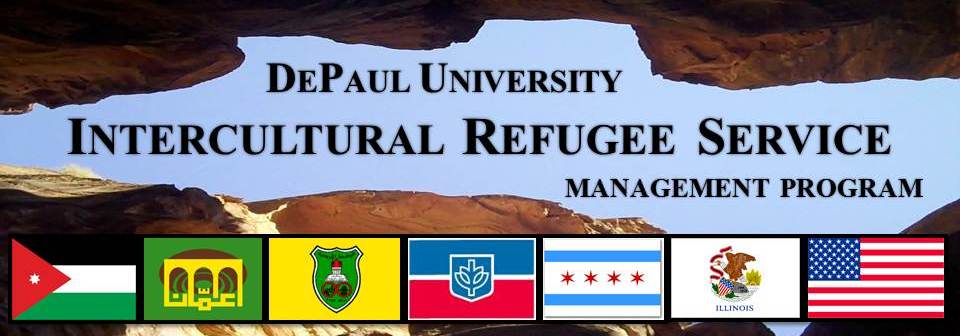
The Palestinian refugees in Jordan seemingly have a very simple wish: they want to return to Palestine. They want to go home. This simple wish however, could not be more complicated. The politics in this region border on insane. The reality of them returning is minimal. Even with this knowledge, the Palestinian refugees have an incredibly strong sense of home. Frankly, it took me aback a little bit. Certainly I was aware of this sense from my friends, but I really had no clue it ran so pervasive throughout all levels of Palestinian society in Jordan. There are both negative and positive aspects to having such a dedication to the idea of returning to Palestine.
On a positive note, the Palestinian identity is unifying. It is unifying like nothing I have ever really seen in my life. Palestinian refugees in Jordan have had, and are having, difficult experiences. The very knowledge that they have a homeland to dream about, and a people to be proud of unites them incredibly. Because they are united, they are able to better tolerate the conditions in which they live. While many Palestinians in Jordan have fully integrated into society, many more still live separated. It is their identity and shared suffering that keeps them strong. The fact that as a people they have been through trials and tribulations keeps them united. Crisis and persecution will unite a people greatly. Under duress, the Palestinian refugees have created a strong society. Although many of them live in difficult conditions, the refugees are able to keep hope alive. This is perhaps do to their difficult conditions, they can only dream of their homeland. The dream keeps them going, it makes them get up in the morning and face another day of strife and hardship. However, their unity also helps them defeat strife through pure ingenuity. We saw initiative after initiative of Palestinian refugees helping themselves, and ultimately helping everyone in the community. However, there is a downside to the obsession with a homeland return.
Unless it is by a miracle (which could happen), Palestinian refugees are never going to return to Palestine. There is absolutely no way that the state of Israel is going to let hundreds of thousands of Palestinians return to their homes. They are too invested in their own security to allow such a mass return. Israel is in the business of hurting the Palestinian cause and Palestinians. I highly doubt that they will have a sudden change of heart and let everyone they forced out (and their descendants) come back. Moreover, there simply would not be the infrastructure to support such a return to Palestine. As sad as it is, Palestinian refugees are not going home, at least not anytime soon. This is where the idea of Palestinian identity and unity can pose somewhat of a problem. While it certainly is a unifying factor and imperative to morale, the identity can also be detrimental. Palestinian refugees have accepted the cards that have been dealt to them. They live in horrible conditions, but if a way it seems like there is not a lot of impetus to get out of those situations. While that sounds awful to say, it may be partly true. If the Palestinians live in horrible conditions, it gives them more reason to exploit their plight, and it forces the world to pay attention. I am sure that some Palestinian refugees are afraid of fully becoming part of Jordanian society, or accepting Jordanian citizenship because they may lose their Palestinian identity. Also, if they give in and integrate the rest of the world may think that they have given up the idea of returning home. Therefore, there they stay. Stuck in a horrible situation with an identity crisis. They know who they are, and where they came from. However, they have no clue where they are going. They know they can stay in Jordan however, which is more than the Iraqi guests can say.
As opposed to Palestinian refugees, the Iraqi situation in Jordan poses sometimes more difficult questions. While the Palestinians have the right to work, and live in Jordan-the Iraqis do not. They are not classified as refugees. Their identity has been lost. They cannot go home, but they certainly cannot stay in Jordan. The Kingdom simply is unable to support such a large population of people. They can barely support their own people, or the Palestinians. The Iraqis in Jordan are having difficulty assimilating to Jordanian culture. Within Jordan there is a lot of backlash against their presence. They are not welcome, and they know it. They come from a country that was at one time fairly middle-class. They are oftentimes highly educated, and have trouble adjusting. Jordan is just a place of transition for them; their fates lie elsewhere. They can either return to Iraq and face danger, or go to a third country-usually the United States.
The Palestinian refugees and Iraqi guests may share different pasts, and different futures, but they are both stuck in the same place. When it comes down to it, Jordan is a pretty good place to be stuck in. It may not be home, but at least it is safe and stable. Until the refugees and guests can go home (if ever), Jordan will have to remain their safe haven.
-Timothy Scheel
Photo Credit: Timothy Scheel

No comments:
Post a Comment